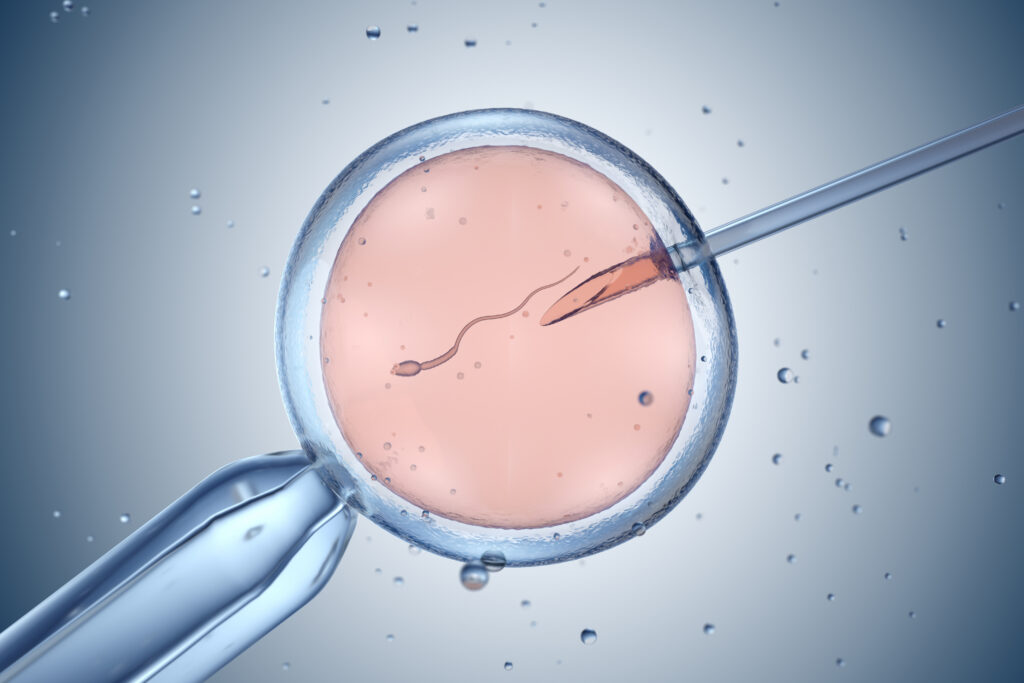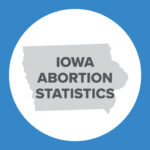Pro-Life Topics for Lawmakers Regarding Coronavirus
This is Issue 43 in the On Point Series.
Abortion advocates have found a new ally—COVID-19.
During this intensely stressful time, the vast majority of Americans are focused on protecting their health and the health of loved ones, neighbors, and vulnerable members of their community. The abortion industry, however, is seizing on this national emergency to promote their agenda. While doctors are compelled to reschedule colonoscopies and low-risk cancer surgeries, abortion providers are open for business and are advocating for taxpayer-funded abortion and federal authority to dispense abortion-inducing drugs through telemedicine.
However, nothing has occurred that would justify any weakening of current safeguards for women and the unborn, and the risks associated with abortion are arguably greater than ever in the face of strained medical resources. Specifically:
1. Federal funding limitations on abortion (i.e., the Hyde Amendment and similar provisions) should remain in place and be part of any healthcare legislation; 2. The Food and Drug Administration (FDA) should maintain current regulations of the abortion-inducing drug mifepristone; 3. Abortion remains an elective procedure that should be considered Tier 1 under recent Center for Medicare and Medicaid Services (CMS) guidance; 4 Current research does not demonstrate that COVID-19 poses extraordinary health risks in pregnancy; and 5. Research using fetal tissue from abortions is not necessary in order to find or test therapies for COVID-19.
I. Federal funding limitations on abortion (e., the Hyde Amendment and similar provisions) should remain in place and be part of any healthcare legislation.
In recent years, abortion advocates have become increasingly vocal about their bitter opposition to the Hyde Amendment and any other restriction on taxpayer funding for abortion. It is well recognized that a pro-abortion president and congress would permit unfettered taxpayer funding for abortion in federally funded healthcare programs.
However, today we have a president and a slim majority in the Senate who support the Hyde Amendment, compelling House Democrats to covertly attempt to subsidize abortion through new funding streams that are “silent” on the topic. The Democrats know that this strategy can be effective because, in the past, federal courts and administrative agencies have interpreted government-funded healthcare programs to include abortion funding and coverage when such funding and coverage are not explicitly prohibited (which is why the Hyde Amendment was necessary in the first place).
Pro-life lawmakers know this, too, and insisted that the coronavirus relief package signed on March 18 included the Hyde Amendment. However, another package is under consideration, and the battle will continue.
Nothing about this current national emergency warrants a change in abortion funding policy. In fact, the current stress on the medical system counsels against the performance of any abortions, much less federal funding and encouragement of the inherently elective procedure.
II. The FDA should maintain current regulations of the abortion-inducing drug mifepristone.
The pressure has never been higher for the FDA to abandon the mifepristone Risk Evaluation and Mitigation Strategy (REMS) with elements to assure safe use (ETASU)— regulations written to “ensure” women safely use the FDA-approved drug regimen to abort unborn children up to 10 weeks gestation.
Abortion advocates were already challenging these regulations[1] in federal court and conducting clinical studies intended to undermine the requirements. Now they are using the COVID-19 emergency to advocate for unfettered access to abortion-inducing drugs.
Abortion promoters like Dr. Dustin Costescu and Dr. Daniel Grossman are sending tweets that advocate for self-managed abortion and expanded access to telemed abortions “to keep patients and providers safe.” In reality, they are encouraging women to take dangerous drugs without close provider oversight, which will ultimately force a significant percentage of these women to seek care for hemorrhaging in overwhelmed emergency rooms.
Fortunately, FDA is not permitting abortion providers to subvert the mifepristone REMS with ETASU. FDA just released a “Policy for Certain REMS Requirements During the COVID-19 Public Health Emergency,” which temporarily relaxes REMS requirements for some drugs. However, the policy is narrow in scope and does not impact the mifepristone REMS. The guidance provides that it is “limited to [FDA] enforcement policy with respect to laboratory testing and imaging study requirements and does not address other REMS requirements, such as those for in-person administration.”
Specifically, the guidance allows physicians the discretion to determine that there are “compelling reasons” not to perform laboratory testing or imaging studies that are required under certain REMS with ETASU during the COVID-19 emergency. In other words, this is for ongoing treatment of a condition where doctors are normally required to monitor how a drug is impacting a patient. If that patient has been doing well (e.g., their liver enzymes are fine), a doctor might decide that it is not worth the risks to run more tests right now.
This may be the worst possible time for abortion advocates to experiment with prescribing abortion drugs to women without close oversight. It appears the FDA recognizes this and has no intention to undermine these potentially life-saving regulations.
III. Abortion remains an elective procedure that should be considered Tier 1 under recent CMS guidance.
The Centers for Medicare & Medicaid Services released “Adult Elective Surgery and Procedures Recommendations” to “limit non-essential adult elective surgery and medical and surgical procedures . . . [to] assist in the management of vital healthcare resources during this public health emergency.”
The recommendations include a tiered framework to “inform health systems as they consider resources and how to best provide surgical services and procedures to those whose condition requires emergent or urgent attention to save a life, preserve organ function, and avoid further harms from underlying condition or disease” (emphasis added).
Abortion is not explicitly mentioned in the tiered framework. However, the vast majority of abortions are either outpatient surgical procedures or drug-induced, and they are elective procedures that are certainly not necessary to “save a life, preserve organ function, and avoid further harm.” Surgical abortion procedures therefore belong in Tier 1, where the recommended action is “postpone surgery/procedure.”
Further, given that drug-induced abortion requires a subsequent surgical procedure in five to seven percent of cases, abortion providers should refrain from prescribing abortion-inducing drugs as well.
IV. Current research does not demonstrate that COVID-19 poses extraordinary health risks in pregnancy
There is a lot we do not yet know about the coronavirus and pregnancy, and unfortunately no long-term studies have been done to date on pregnant women with COVID-19. But recent reports of early cases are helping to advise and inform pregnant women and their physicians about safety issues regarding the coronavirus. A review of current data shows that there is good news for pregnant moms and their children.
Pregnant women do not appear to be at a higher risk of infection compared to the average healthy adult. While pregnant women are at risk for any viral respiratory infection, there is not enough information to currently know whether pregnant women have a greater chance of getting sick from COVID-19 compared to the general public. According to the Centers for Disease Control and Prevention (CDC) and an article in the American Journal of Obstetrics and Gynecology, those at greatest risk of hospitalization are not pregnant women, but instead are more likely to be male, older adults (>65 years), and have underlying medical conditions like heart disease, lung disease, and diabetes.
There is no evidence of vertical transmission of coronavirus (transfer from mother to baby) during pregnancy, unlike other viral infections such as Zika and Ebola.[2] Recent published studies out of China all report the same finding: there is no evidence of vertical transmission in mothers diagnosed during late pregnancy with COVID-19 pneumonia.[3],[4],[5] The coronavirus was not detected in the amniotic fluid, placenta, cord blood, breast milk, or neonates. The CDC’s guidance on breastfeeding for mothers with confirmed COVID-19 or under investigation for COVID-19, indicates that this decision should be determined by the mother in coordination with her family and healthcare providers. Studies to date are limited by small sample size. Therefore, more studies with large samples are needed to further validate these reported findings.
There have been no cases of maternal deaths in pregnancy.[6] In a detailed analysis of published reports of 38 pregnant women with COVID-19, of whom 37 had confirmed SARS-CoV-2 infection, there were no cases of maternal deaths.[7] The majority of women underwent cesarean sections and there were co-morbid conditions present in some of the women, but they did not apparently result in life-threatening maternal COVID-19 related disease.
Women infected with coronavirus during pregnancy deliver live babies. Studies from China report that 100% of pregnant women who developed COVID-19 pneumonia in their third trimester go on to have live births.[8]
There have been no deaths attributable to Coronavirus in neonates to date.
According to the CDC, “We do not know at this time what if any risk is posed to infants of a pregnant woman who has COVID-19. There have been a small number of reported problems with pregnancy or delivery (e.g. preterm birth) in babies born to mothers who tested positive for COVID-19 during their pregnancy. However, it is not clear that these outcomes were related to maternal infection.”[9]
V. Research using fetal tissue from abortions is not necessary in order to find or test therapies for COVID-19
A recent Washington Post news article claimed possible treatments for coronavirus will not be discovered without using aborted human fetal tissue, thereby blocking potential drugs that could “save hundreds of thousands of lives.” Their claims are misleading and highly exaggerated.
Here are the facts:
- A Rocky Mountain lab in Montana, headed by Dr. Kim Hasenkrug, has been receiving National Institutes of Health (NIH) funding (total project funding amount for nine projects is $4,178,110 since 2011) to study Human Immunodeficiency Virus (HIV) infection in humanized mice.
- News Alert: Two research teams in China presented details in the journal JAMA of 3 neonates who may have been infected with severe acute respiratory syndrome coronavirus 2 (SARS-CoV-2) in utero from mothers with coronavirus disease 2019 (COVID-19).
- This lab was impacted by the new U.S. Department of Health and Human Services (HHS) rule from June 2019 to discontinue intramural (i.e., internal) research projects at the NIH that involved primary Human fetal thymus (HFT) derived from elective abortions.
- After the HHS rule was enacted, this lab continued to receive over $0.5 million dollars in federal funding for non-fetal tissue research.[9]
- This same Rocky Mountain lab now wants to exploit the current coronavirus situation in order to receive an exception and obtain a BLT-L humanized mouse model containing four different types of human fetal tissue (Bone marrow/Liver/Thymus/Lung) from the University of North Carolina, based on one published study describing their generation.[10]
- Hasenkrug wants to test potential therapies in these BLT-L mice, not create new treatments.
- There is no evidence that these BLT-L mice can even be infected with SARS-CoV-2, the specific coronavirus strain that causes COVID-19. So, we don’t even know if the studies proposed by the Montana lab will work, let alone be useful to screen potential therapies.
- The mice they want to use requires the intentional and deliberate destruction of human life in order to harvest the organs—the livers, thymus, and lungs—from babies.
Instead of playing on people’s fears and requesting access to humanized mice generated with aborted fetal tissue, the Montana lab could refocus their attention to other ethical alternatives that do not rely on human fetal tissue from abortions including humanized mice made with adult stem cells from cord blood, peripheral blood, and even discarded tissue from living neonates undergoing routine surgical procedures. There are many other ethical alternatives to fetal tissue available now that they could test, and many more in development thanks to NIH directing additional funding to new areas of research.
Aborted fetal tissue is not necessary for the development of protections or treatments for the coronavirus, nor for any other disease. The fact remains that fetal tissue research is unethical, antiquated science. This is not the first time scientists that want to use aborted fetal tissue have been exposed for the falseness of their statements to justify their questionable experiments. And fetal tissue research is indeed controversial, in terms of the ethics and the science. Rather than using precious taxpayer dollars to continue antiquated, unethically-sourced research, we should be using and optimizing the plethora of modern, successful alternatives available.
For coronavirus in particular, there are over 60 potential treatments under investigation. There is no need for aborted fetal tissue to fight coronavirus, but there is no lack of swift progress with ethical alternatives, including some that have already started clinical trials. One potential treatment for coronavirus does involve use of a humanized mouse, but one that does not use any aborted fetal tissue. This modern version, the VelocImmune mouse, is genetically engineered to produce human antibodies for therapeutic use, including arthritis and potential treatment for infections with coronavirus. Repurposing an already-approved drug also shows promise in treating coronavirus. The drug for malaria is moving particularly fast through the research, development, and clinical trial process, when used alone or in combination with other drugs.
In response to the empty claim that aborted fetal tissue is necessary to produce human lung tissue and test coronavirus treatment, an adult stem cell has been shown to generate new lung tissue and heal damaged lungs. In fact, the researchers noted that this adult stem cell type is essential to repairing lung tissue damaged by severe influenza and other respiratory ailments. Another adult stem cell type has already been deployed in China, and has shown success at improving health outcomes for patients with coronavirus-associated pneumonia.
Let’s also remember that the new Trump administration policy now gives ethics primacy in the funding of investigator grants that propose to use human fetal tissue from elective abortions. Therefore, one has to question the timing of this Washington Post article, as HHS is currently reviewing nominations for an Ethics Board to carefully examine the ethics of research proposals using human fetal tissue.
The fact is that no lives are being lost due to coronavirus because these few scientists cannot obtain and use tissue from aborted baby body parts.
Mary Harned, J.D., is an associate scholar with the Charlotte Lozier Institute.
Tara Sander Lee, Ph.D., is senior fellow and director of life sciences for the Institute.
[1] Abortion advocates most strongly oppose requirements that: mifepristone prescribers be certified (and thus meet certain professional qualifications); the providers dispense the drug directly to patients (not through pharmacies or the mail); and patients sign a Patient Agreement Form.
[2] H. Chen et al., Clinical characteristics and intrauterine vertical transmission potential of COVID-19 infection in nine pregnant women: a retrospective review of medical records. Lancet 395: 809–15, 2020
[3] Y. Chen et al., Infants Born to Mothers with a New Coronavirus (COVID-19). Front. Pediatr. 8:104, 2020
[4] H. Zhu et al., Clinical analysis of 10 neonates born to mothers with 2019-nCoV pneumonia. Transl Pediatr 9(1):51-60, 2020
[5] Society for Maternal Fetal Medicine reports one case in 18 women who required intubation and mechanical ventilation.
[6] D. Schwartz, An Analysis of 38 Pregnant Women with 2 COVID-19, Their Newborn Infants, and Maternal-Fetal Transmission of SARS-CoV-2: Maternal Coronavirus Infections and Pregnancy Outcomes. College of American Pathologists, Archives of Pathology and Laboratory Medicine, early online release, available at: https://www.archivesofpathology.org/doi/pdf/10.5858/arpa.2020-0901-SA
[7] ibid
[8] https://www.cdc.gov/coronavirus/2019-ncov/prepare/pregnancy-breastfeeding.html
[9] Example: https://projectreporter.nih.gov/project_info_details.cfm?aid=10014196&icde=48030808
[10] A. Wahl et al., Precision Mouse Models with Expanded Tropism for Human Pathogens. Nat Biotechnol. 37(10):1163, 2019.



























